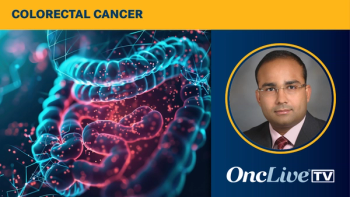
Dr Nasioudis on the Use of NGS to Identify the Molecular Profile of Endometroid Ovarian Cancer
Dimitrios Nasioudis, MD, discusses how the use of next-generation sequencing can help identify the unique molecular profile of endometroid ovarian cancer.
Dimitrios Nasioudis, MD, physician, fellow, gynecologic oncology, Department of Obsetrics and Gynecology, University of Pennsylvania, Penn Medicine, discusses how the use of next-generation sequencing (NGS) can help identify the unique molecular profile of endometroid ovarian cancer.
As endometroid ovarian cancer is a rare histologic subtype of ovarian cancer, identifying its distinct molecular profile is important for improving treatment in this patient population. To accomplish this, a multicenter study was designed to determine the prevalence of specific genomic alterations associated with this molecular subtype, Nasioudis begins. Researchers analyzed prospective data from the AACR Project GENIE v13.0 genomic database to identify patients with endometroid ovarian cancer, Nasioudis explains. The database contains de-identified molecular NGS data from patients being treated at 18 different institutions. The trial also utilized data from the OncoKB database to evaluate the presence of pathogenic gene alterations.
Results showed a high incidence of ARID1A alterations and PIK3CA alterations at 39% and 38% respectively, Nasioudis continues. Other prevalent mutations included PTEN, CTNNB and KRAS, he says. The incidence of TP53 had the lowest prevalence at 21%. Notably, the exclusivity of P53mutations compared with the other alterations indicates that endometroid ovarian cancer is a distinct subtype with its own specific molecular profile, Nasioudis notes. Additionally, the prevalence of these MAPK/ERK and mTOR/PIK3CA mutations indicates a future avenue of investigation.
Ultimately, this trial also demonstrates the utility of NGS in identifying actionable mutations for continued research on the development of targeted therapeutics, and guides enrollment in basket trials, Nasioudis states. Moreover, data obtained from NGS can inform treatment decisions, Nasioudis concludes.



































